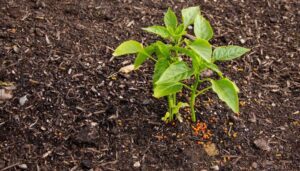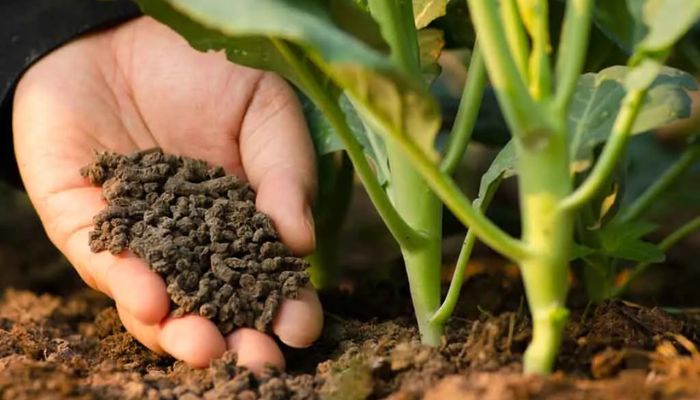As a passionate gardener with more than seven years of experience taking care of plants, I know how important it is to use organic fertilizers. Organic fertilizers, on the other hand, work with the soil’s natural processes to make the perfect conditions for plants to grow well. I’ll talk about How Can Organic Fertilizers Enhance Plant Growth? in this article.
What Are Fertilizers Made Of?
Natural things like animal manure, compost, bone meal, blood meal, bat guano, worm castings, seaweed, and more are used to make organic fertilizers. They give off nutrients when they naturally break down dead plants and animals. This gives plant roots a steady flow of nitrogen, phosphorus, and other minerals that they can use as needed.
Benefits of Using Organic Fertilizers
Over the past seven years of gardening, I’ve seen a lot of great benefits from using organic fertilizers:
- Organic matter in natural fertilizers feeds soil microbes and adds humus, which makes the soil structure better. This makes the soil loose and crumbly, which is great for root growth.
- Boosts nutrient uptake—Organic fertilizers bring out a lot of microbes that make it easier for roots and soil to exchange minerals. This helps the body take in nutrients.
- Balances the pH of the soil: Carbon compounds found in organic matter balance the pH of the soil. Soil nutrients don’t get “locked up” by sudden changes in pH.
- Helps keep water in the soil—humus can hold up to 90% of its own weight in water. Organic fertilizers make it possible for the soil to hold more water.
- Offers a wide range of macro and micronutrients—The variety of organic materials found in natural fertilizers makes them a good source of many important minerals.
- Improves disease control—Organic fertilizers increase the number of beneficial microbes that live in the soil and compete with and fight off soil-borne pathogens. Infections are less likely to happen.
How Organic Fertilizers Enhance Plant Growth
The reasons why organic fertilizers work so well have been explained. Now let’s look at how they specifically help plants grow and develop:

- Encourages a strong root system—Organic fertilizers feed the soil’s life and structure, which helps roots grow strongly. Better roots mean that the plant can take in more nutrients.
- Fuels plant metabolism—Organic fertilizers provide a steady flow of nutrients that are just right for all of a plant’s metabolic processes. This shows up as more flowers, fruits, and strong plant growth.
- Increases plant resistance to stress—Plants that are grown with organic fertilizers can get to water and nutrients more easily. This gives them more strength to deal with things that stress them out in the environment, like drought, heat, cold spells, pests, and diseases.
- Increases the freshness of food—Fruits and vegetables that have been grown organically have more nutrients and antioxidants, so their taste and appearance last longer after they’ve been picked.
- Lifts up Brix values: Brix is a way to measure how much sugar and nutrients are in plants. Organic fertilizers always give plants higher Brix readings because they provide balanced, slow-release nutrition.
- Makes flavors and smells stronger: When I compare foods grown organically to foods grown conventionally, I can tell that the flavors and smells are stronger in organic foods.
Examples of Organic Fertilizers
These are some great organic fertilizer choices that I’ve had great results with in my garden:
- Compost: Compost is the best organic fertilizer there is. It has the right amount of microbes, plant nutrients, and organic matter. Before I plant, I mix 1-2 inches of dirt into the beds.
- Worm castings: These give your plants a huge amount of good soil life and nutrition that is released over time. When I move seedlings or plants that need a lot of food, like tomatoes, I use castings.
- Alfalfa meal: Triacontanol, cytokines, and auxins are just a few of the compounds in alfalfa that help plants grow. I use it to help plants flower and produce fruit.
- Fish emulsion: The nitrogen and trace elements in fish emulsion work quickly to give you more nutrition. It’s a great way to fix problems during the growing season.
- Greensand is a sedimentary rock that is high in minerals and releases potassium and micronutrients over time. It’s what I use before planting root or tuber plants that need extra potassium.
- Granite dust: Phosphorus, potassium, and silica are slowly released from granite dust. It’s great for making plants stronger and flowering more.
The Power of Organic Fertilizers
I hope I’ve shown how much better organic fertilizers can be for plant health and crop quality than synthetic ones. They do much more than just add nutrients to the soil; they make it the perfect place for plants to grow in every way. Since I’ve been using organic fertilizers in my garden for seven years, I can say that they consistently produce better, more plentiful harvests that are packed full of nutrients and flavor. These will help your plants grow better this season.
I’ve seen firsthand how these fertilizers can change the health of the soil, the strength of the plants, and the overall output of the garden over many years of experience. By learning about the science behind organic fertilization and using it in your garden, you can create a healthy ecosystem that gives you lots of tasty, healthy food. I hope you now know everything you need to know about “How Can Organic Fertilizers Help Plants Grow?”

Katia Hougaard is a PhD candidate at Imperial College London, specializing in plant-aphid interactions. With a background in Plant Biology from the University of Texas at Austin, she focuses on the genetic and physiological resistance of Medicago truncatula to pea aphids. Katia has served as a science advisor for startups in vertical farming and the houseplant industry. She also mentors students and manages a research lab, contributing her expertise to both academic and entrepreneurial projects. At SuperbPlants.com, Katia shares her in-depth knowledge of plant biology, emphasizing sustainable practices and scientific integrity.





